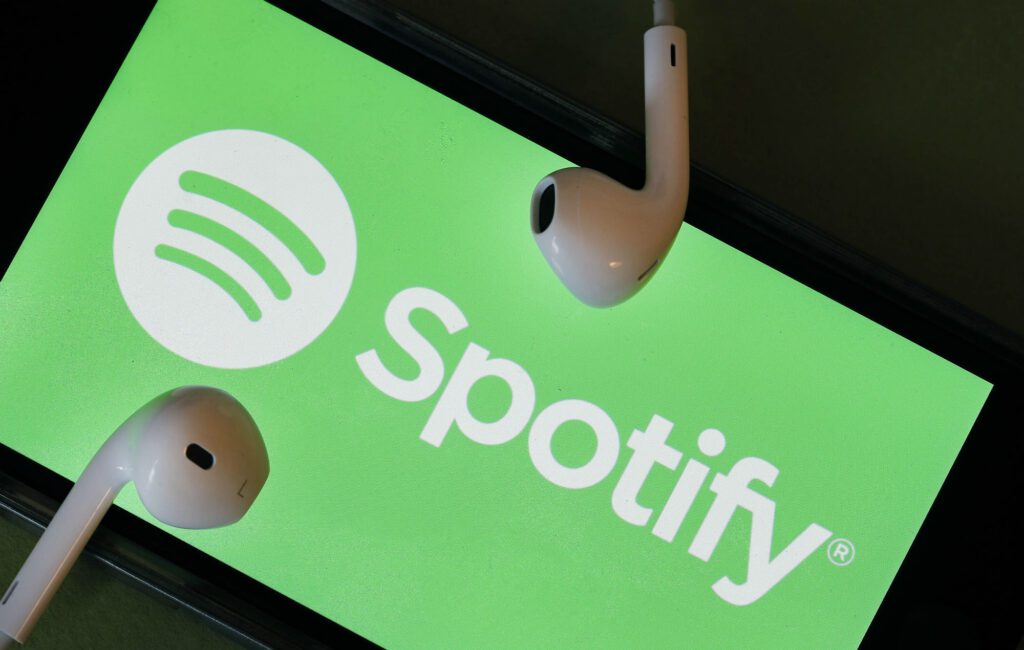Spotify tells inquiry that raising its fee could push people to online piracy
Spotify has told MPs at an inquiry into the economics of music streaming that raising its subscription price could push users to online piracy.
The streaming giant’s chief legal officer told the Digital, Culture, Media and Sport select committee (DCMS) inquiry earlier today (February 23) that raising its £9.99 monthly fee could turn subscribers away, despite suggestions that a hike could help artists earn more money.
Spotify, which hasn’t altered its fee in a decade, is wary of helping nurture an illegal market if a new price becomes “unaffordable to consumers”, Horacio Gutierrez said.
The DCMS inquiry was established in 2020 to investigate whether musicians are being paid fairly by services including Spotify, Amazon Music, Apple Music and YouTube.
Representatives for Spotify, Amazon Music and Apple Music were at the hearing and all agreed that new ways of distributing money should be explored.
As BBC News reports, one suggestion was a user-centric payment system where, if you only listen to one artist, your entire subscription fee goes directly to them.

At present, all the money earned by streaming services is pooled before being distributed according to market share. For example, if Ed Sheeran accounts for 2 per cent of all streams on Apple Music, then he and his label receive 2 per cent of the money.
Gutierrez said Spotify would “definitely be open to looking for alternative models and considering them” while Amazon Music’s Paul Firth said “we should take a look at a number of these approaches” to establish what benefits the artist best.
However, Apple Music’s Elena Segal warned that a new method would need to be agreed by everyone who supplies music to the streaming services before it could be established.
Kevin Brennan MP quizzed Gutierrez on a comment made by Spotify CCO Dawn Ostroff, who previously told the inquiry “our job is sucking listeners away from radio”.
In light of that, Brennan asked Gutierrez: “Shouldn’t musicians who get equitable renumeration from radio plays be reasonably entitled to get equitable renumeration from streaming?”
“Yes, it’s not going to happen overnight and there is no guarantees it will happen completely,” Gutierrez responded, referencing a need for the platform to succeed in attracting more listeners.
By Spotify's own admission they want to "suck listeners away from radio." So in @CommonsDCMS I put it to their Head of Global Affairs that if that's the market they are going after then they should pay musicians equitable remuneration like radio does. #BrokenRecord #FixStreaming pic.twitter.com/NCCkvANf55
— Kevin Brennan MP (@KevinBrennanMP) February 23, 2021
Elsewhere in the hearing, the representatives targeted YouTube, which is claimed to pay the least out of the four major streamers. Spotify is believed to pay between £0.002 and £0.0038 per stream and Apple Music approximately £0.0059. YouTube is thought to pay the least: about £0.00052 (or 0.05 pence) per stream.
Segal said it was challenging for streaming services to compete with the music available on YouTube, which is owned by Google. “Competing with free is very difficult,” she said. “It’s challenging to compete on an un-level playing field.
“They don’t necessarily have licenses for all the music that they use, and they don’t need to,” she said, highlighting the safe harbour laws that protect YouTube from legal claims when users upload copyrighted material. “Even when they do have licenses, the amount they pay…is less.”
Earlier this month, YouTube defended its royalty scheme for artists, claiming that it’s close to being the top revenue source in the industry.





